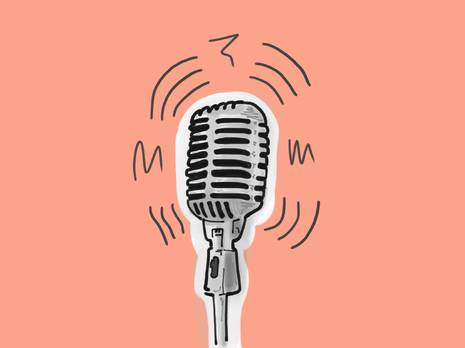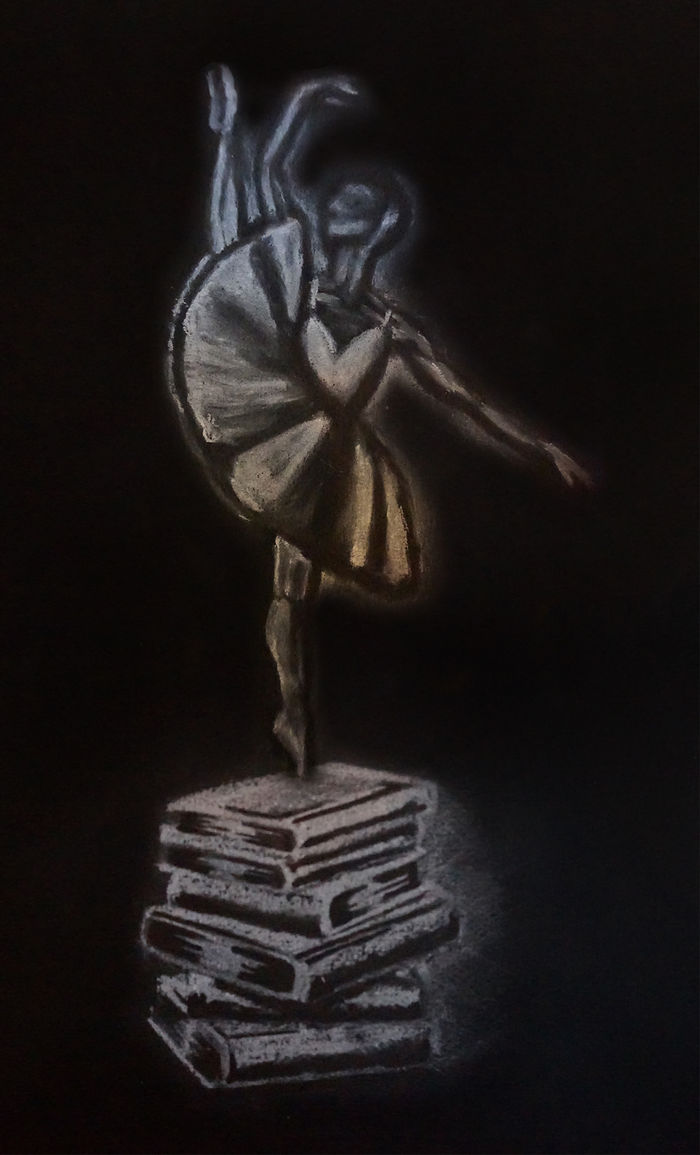Being a Cambridge comic with depression
Cambridge comic, Anna Trowby, discusses her experience with comedy and how it interacts with her depression

Content Note: This article contains detailed discussion of mental health.
It’s seconds before I’m due onstage, and I’m already feeling nauseous. My nerves drain my mind of any comprehensible thought, my limbs shake with trepidation, and I keep on swallowing and clearing my throat, scared of messing up my set.
Tonight is the Lady Margaret Players’ Scratch night, and I’m about to perform a character sketch with my friend and writing partner. There’s no reason to be this nervous, especially since the night is less about a perfectly finished product than it is about the capacity of the performance to be developed into something further, and the process behind creating new theatre pieces. There is hardly any risk factor involved, so why am I so frightened of going onstage? Of a potential slip-up in front of people who wouldn’t otherwise care?
“It’s gotten harder to keep up the comic façade...”
Maybe it’s because, deep down, I know that I don’t have the right mindset to do comedy. It’s gotten harder to keep up the comic façade, especially when I have been suppressing a faceless beast that I’m scared of even giving a name to.
I started taking treatment for depression in Michaelmas, right before I started doing comedy gigs around Cambridge. I thought that doing comedy would be an effective way of escaping my problems – to pretend, even for five minutes on stage, that I didn’t have a gaping hole inside of me. I thought of comedy as an alternative universe I could lose myself in, only to discover that it exacerbated my relationship with my mental illness.
I have been suffering from depression from around the age of 16, although I have only been taking medication for it since I was 19. When I first expressed concerns about my mental health to my GP, I was told that my symptoms were merely a result of raging hormones and the sudden loss of my grandmother to lung cancer when I was 14 years old. Had the doctor known more about my personal and family history with mental health, I would have likely received treatment earlier.
As a child, I often had to move from family member to family member. The most impactful living arrangement was with my mother after my parents’ separation at age six. It was around this time that my mother developed severe mental health disorders, and to this day I am not sure what to call the demons that afflicted her. My father believes that she suffered from dissociative personality disorder or bipolar disorder, but after years of trying to get her to seek professional help and watching as she refused to take responsibility for her mental health, I have given up on ever knowing what she had. All I know is that living with her left an invisible, yet profound, mark on me. My mother was prone to mood swings, bursts of anger, and severe depression. I can remember days when she’d pivot from one mood to another, one minute laughing maniacally and the next minute crying into her balled-up fists. My mother could not function as a human being, and she was so caught up in the extremes of her emotions that she could never find a core of stability.
“It’s no secret that comedy coincides with mental illness.”
Growing up, I absorbed this parade of emotions, passively witnessing her extreme outbursts without realising that this was abnormal. I eventually moved away to live with my grandparents, who were able to give me a more stable upbringing. It seemed that I had been saved from the angry masks haunting my mother, but the truth is that we ignored the trauma of my upbringing, until it exploded into full force a few years later.
When I was 16, I started suffering from periods of depression, suspended in a silence that ate itself away to nothing. The illness came in waves, receding to a calm serenity before washing me over in the same symptoms that have plagued me for nearly four years: constant exhaustion, sleeplessness, restlessness, weight loss, and thoughts telling me to do away with life. If it wasn’t for the fact that I fear death, I may have committed suicide a while ago. Right now, I feel like I am neither living or dying – I feel nothing, and I sometimes wonder if I exist at all.
I started doing comedy because I thought it would make me feel something again, anything to stave off the chorus of depression and suicidal thoughts. If anything, I found that stand-up aggravated my depression. My acts are often hyperbolic and excessive, and I often wonder if the audience can see past the performance and into the dark side of my life. I wonder if they can see me flailing onstage, grasping for laughter in the darkness, reaching for the lighter part of their souls - and mine. I also wonder if they can sense how much my mother’s ghost stalks me, when I act out the highs and lows of each phrase, waiting for applause.
It’s no secret that comedy coincides with mental illness. Renowned comedians, from Stephen Fry to Robin Williams, have been upfront about their experiences of depression and how it interacts with their comic craft. In my case, it is a blessing and a curse. Performance temporarily gives me an escape route to dislocate myself from my body. But it also feels like a chore. As much as I love making people laugh, I also know there’s something fake and indulgent about my stand-ups, as if I am trying to gloss over the cracks I don’t want the audience to see. Comedy feels like an extension of my depression, not an end to it – the anxiety that I feel before a performance, the way my limbs quiver like branches in the wind, and the high of performing before I descend to the inevitable low, just as my mother experienced.
It offers me little comfort that this is something that will affect me for the rest of my life, and I must come to terms with this fact. The least I can do, however, is to be more honest with myself and others about my experience of depression, and to stop giving cover to something that had been so impactful on my life. It doesn’t feel right to act like I have suddenly found a solution to a problem I am still in the midst of processing. Being optimistic is something that I could only fake at this point. Certainly, however, there are possible remedies and articles like this can at least give a voice to my experience with what I have finally given a name to – depression.
If you are worried about your mental health, the following are useful sources of support:
∙ https://www.counselling.cam.ac.uk
∙ http://studentmindscambridge.co.uk
∙ https://www.cpft.nhs.uk/about-us/mental-health-crisis.htm
 News / Caius mourns its tree-mendous loss23 December 2025
News / Caius mourns its tree-mendous loss23 December 2025 News / Clare Hall spent over £500k opposing busway 24 December 2025
News / Clare Hall spent over £500k opposing busway 24 December 2025 Comment / Yes, I’m brown – but I have more important things to say22 December 2025
Comment / Yes, I’m brown – but I have more important things to say22 December 2025 Comment / The ‘class’ of Cambridge24 December 2025
Comment / The ‘class’ of Cambridge24 December 2025 Interviews / Politics, your own way: Tilly Middlehurst on speaking out21 December 2025
Interviews / Politics, your own way: Tilly Middlehurst on speaking out21 December 2025








